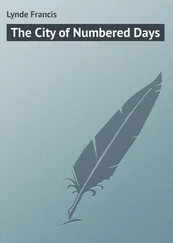Francis Lynde - The Helpers
Здесь есть возможность читать онлайн «Francis Lynde - The Helpers» — ознакомительный отрывок электронной книги совершенно бесплатно, а после прочтения отрывка купить полную версию. В некоторых случаях можно слушать аудио, скачать через торрент в формате fb2 и присутствует краткое содержание. Жанр: foreign_prose, на английском языке. Описание произведения, (предисловие) а так же отзывы посетителей доступны на портале библиотеки ЛибКат.
- Название:The Helpers
- Автор:
- Жанр:
- Год:неизвестен
- ISBN:нет данных
- Рейтинг книги:4 / 5. Голосов: 1
-
Избранное:Добавить в избранное
- Отзывы:
-
Ваша оценка:
- 80
- 1
- 2
- 3
- 4
- 5
The Helpers: краткое содержание, описание и аннотация
Предлагаем к чтению аннотацию, описание, краткое содержание или предисловие (зависит от того, что написал сам автор книги «The Helpers»). Если вы не нашли необходимую информацию о книге — напишите в комментариях, мы постараемся отыскать её.
The Helpers — читать онлайн ознакомительный отрывок
Ниже представлен текст книги, разбитый по страницам. Система сохранения места последней прочитанной страницы, позволяет с удобством читать онлайн бесплатно книгу «The Helpers», без необходимости каждый раз заново искать на чём Вы остановились. Поставьте закладку, и сможете в любой момент перейти на страницу, на которой закончили чтение.
Интервал:
Закладка:
"I can trust you," said Constance; and she took her leave presently, wondering how the many-sided world could so unify itself in its merciless condemnation of the Magdalenes.
When she had closed Margaret's door behind her and was halfway to the stair, she heard sounds as of a scuffle coming from a corridor intersecting the main hallway at the landing. Her first impulse was to retreat to Margaret Gannon's room; but when she recognized Tommie's voice uplifted in alternate plea and imprecation, she went forward quickly. At the turn she met a gaunt, unshaven man leading Tommie by the ear, and her indignation slipped the leash without a thought of consequences.
"Aren't you ashamed of yourself to abuse a child like that!" she began; and then two things happened: Jeffard released the boy, and Constance recognized in the gaunt figure the wreck of the man whom she had bidden God-speed on the stair at the Calmaine dancing party.
Jeffard flattened himself against the wall, bowed low, and was about to apologize, when Tommie, scenting an accusation, proceeded to vindicate himself by exploding a veritable bomb of consternation between the two.
"I warn't doin' ary single thing, Miss Constance, 'ceptin' jest wot you telled me to do. I caught on to his nibs down on de street an' follered him up yere; an' w'en I was takin' a squint t'rough de keyhole, jest to make sure, he outs an' nabs me."
For one dreadful instant Connie thought she must scream and run away. Then her wits came back, and she saw that deliverance could come only through swift confession.
"Tommie," she said hastily, "run down and wait for me on the sidewalk." And then to Jeffard: "The poor boy wasn't to blame; he was doing just what he had been told to do, and you have a right to ask – to – to know" – She stopped in pitiable embarrassment, and Jeffard flung himself into the breach with chivalric tact.
"Not another word, Miss Elliott, I implore you. It isn't the first time I have been taken for my double, and in broad daylight at that. May I go down and make my peace with the boy?"
Constance was too greatly perturbed not to catch gratefully at the chance to escape, and she made use of it while Jeffard was talking to Tommie at the foot of the stair. Taking Constance's nod and smile in passing as tokens of amity, the urchin allowed himself to be placated; and when Jeffard went back to his room he knew all that Tommie could tell him about Miss Elliott and her deeds of mercy.
That night, before he went out to tramp himself weary, Jeffard did a characteristic thing. He wrapped his last five-dollar note around a bit of plaster dug from the wall, and creeping through the corridor in his stocking feet, tossed the pellet over the transom into Margaret Gannon's room.
CHAPTER IX
At the breakfast-table the next morning, Constance had a shock that set her nerves a-jangle and banished her appetite. The exciting cause was a paragraph in the morning "Coloradoan" which her father had been reading between the fruit and the cereals.
"I wonder if that isn't the fellow Dick was looking for and couldn't find," he queried, passing the paper across the table with his finger on the suggestive paragraph.
It was a custom-hardened account of a commonplace tragedy. A man whose name was given as George Jeffrey had shot himself an hour before midnight on one of the bridges spanning Cherry Creek. Constance read the story of the tragedy with her father's remark in abeyance, and the shock came with the conviction that the self-slain one was Jeffard, whose name might easily become Jeffrey in the hurried notes of a news-gatherer. The meagre particulars tallied accurately with Bartrow's terse account of Jeffard's sociological experiment. The suicide was a late-comer from the farther East; he had spent his money in riotous living; and he had latterly been lost to those who knew him best.
It was characteristic of Stephen Elliott's daughter that she passed the paper back to her father without comment, and that she preserved an outward presentment of cheerfulness during the remainder of the meal. But when she was free she ran up to her room and was seen no more of her father or her cousin until the latter went upstairs an hour later to see if Connie were ready for her morning walk.
"Why, Connie, dear! What is the matter?"
Since her tap at the door went unanswered, Myra had turned the knob and entered. Connie was lying in a dejected little heap on the floor before the fireless grate. She shook her head in dumb protest at her cousin's question; but when Myra knelt beside her it all came out brokenly.
"You didn't see what poppa gave me to read: it was an account of a suicide. Mr. Jeffard has killed himself, and – and, oh, Myra! it's all my fault!"
"Mr. Jeffard? Oh, I remember now, – Mr. Bartrow's friend. But I don't understand; how could it have been your fault?"
"It was, it was! Don't you remember what Dick said? that Mr. Jeffard was in trouble, and that he had a place for him? I saw him yesterday, and I — I didn't tell him! "
"But, Connie, dear, how could you? You didn't know him." Getting no more than a smothered sob in reply to this, Myra asked for particulars, and Connie gave them sparingly.
"You say the name was George Jeffrey? Why do you think it was Mr. Jeffard? I can't for the life of me see how you are to blame, in the remotest sense; but if you are, it's foolish to grieve over it until you are quite sure of the identities. Isn't there any way you can find out?"
Connie sat up at that, but she refused to be comforted.
"There is a way, and I'll try it; but it's no use, Myra. I'm just as sure as if I had stood beside him when he did it. And I shall never, never forgive myself!"
She got up and bathed her eyes, and when she had made herself ready to go out, she refused Myra's proffer of company.
"No, dear; thank you, but I'd rather go alone," she objected; "I'll share the misery of it with you by and by, perhaps, but I can't just yet."
Her plan for making sure was a simple one. Tommie Reagan had known Jeffard living, and he would know him dead. Putting it in train, she found her small henchman selling papers on his regular beat in front of the Opera House; and inasmuch as he was crying the principal fact of the tragedy, she was spared the necessity of entering into details.
"Tommie, have you – did you go to see the man who killed himself last night?" she questioned.
"Nope; der ain't no morbid cur'osity inside o' me."
"Would you go? – if I asked you to?"
"W'y, cert; I'd take a squint at de old feller wid de hoofs an' horns if it'd do you any good."
"Then I'll tell you why I want you to go. I am afraid it is the man we were going to try to help."
The boy shut one eye and whistled softly. "My gosh! but dat's tough, ain't it now! An' jest w'en I'd got 'quainted with him an' was a-fixin' to give him a lift! Dat's wot I call hard luck!"
Constance felt that the uncertainty was no longer to be borne. "Go quickly, Tommie," she directed; "and hurry back as soon as you can. I'll wait for you in the drug store across the street."
The coroner's office was not far to seek, and the small scout was back in a few minutes.
"Dey wouldn't lemme look," he reported, "but I skinned round to where I could see de top o' his head. It's his nibs, right 'nough."
"Tommie! Are you quite sure?"
"Nope; feller ain't sure o' nothin' in dis world, 'ceptin' death an' de penitenchry," amended Tommie, doing violence to his convictions when he saw that his patron saint was sorely in need of comfort. "Maybe 'tain't him, after all. You jest loaf 'round yere a couple o' shakes while I skip down to his hotel an' see wot I can dig up."
The boy was gone less than a quarter of an hour, but to Constance the minutes marched leaden-footed. When Tommie returned, his face signaled discomfiture.
Читать дальшеИнтервал:
Закладка:
Похожие книги на «The Helpers»
Представляем Вашему вниманию похожие книги на «The Helpers» списком для выбора. Мы отобрали схожую по названию и смыслу литературу в надежде предоставить читателям больше вариантов отыскать новые, интересные, ещё непрочитанные произведения.
Обсуждение, отзывы о книге «The Helpers» и просто собственные мнения читателей. Оставьте ваши комментарии, напишите, что Вы думаете о произведении, его смысле или главных героях. Укажите что конкретно понравилось, а что нет, и почему Вы так считаете.












